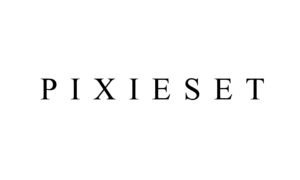We're a team of wedding, elopement and portrait photographers who put community over competition. We provide tips and resources for Photographers looking to up-level their businesses.
We're here to help When you join The Photography Business Academy
8 Recommended Website Platforms for Photographers
What is the best website platform for photographers to create their business site on?
This is one of the most common questions we receive as photography business coaches!
So look…here’s the honest truth, the thing most people won’t tell you…
Your success as a photographer isn’t tied to the platform you build your website on.
Your success with creating an attractive website isn’t tied to the website platform.
Your success with search engine optimization (SEO), also isn’t tied to the website platform…
In fact, we’ve seen great websites on a range of website platforms (and on the other side – we’ve seen some…not so great ones…also on a range of platforms).
What matters most is that you are able to build the website you want, using the tools the platform has, and that enable you to achieve the results you are actually wanting.
Some of you may want to prioritize visual aesthetic and user experience – some of these platforms will be easier than others for achieving this, especially to do this on your own as a DIY website, out of the box.
Some of you will want a simpler website platform over something more complicated (that might even have a larger set of features) – some of these website builders will be better than others.
And some of you will want to make sure your “SEO is good” – and sure enough, some are better than others out of the box – but you can get SEO results using any platform since a significant aspect of your SEO strategy will come in the form of creating high value content).
But there again – there’s always going to be some trade off. Some push and pull.
The purpose of this post is to highlight our most recommended website platforms for photographers, then showcase a wider range of options that are also available for you to explore.
Let’s get started!

Our Top Recommended Website Platforms for Photographers
Showit
Showit is a popular website platform known for its drag-and-drop interface and flexibility in design. It allows you to fully customize your website’s design without needing to know code.
It’s particularly popular with photographers and other creative service providers.
Our Experience with Showit
We have built multiple website’s using Showit including our photography business sites and the Shoot and Thrive website (which you are on right now).
We would consider Showit to be an excellent website platform for photographers to build their websites on because it pretty effectively takes into account the most important needs we have when building out website including – being able to make an aesthetically pleasing website that is aligned with our brands, being able to create additional pages or move things around with ease, being able to rank well for SEO.
As photographers, most of us do not have significant levels of website design knowledge, so the ease of a website builder like Showit can make creating a good website easier than something more technical.
As a “recommendation” – we are taking highly into consideration this use case, which we imagine is going to be most people.
As a matter of honesty, it’s not to say that everything about Showit is perfect or flawless.
In fact, there have been points in using it where I’ve had to scratch my head as there is a learning curve (even though I find it simpler that some alternatives).
But as a whole, Showit is a great website platform for photographers and is worth considering.
Here’s a snapshot of some metrics from one of our photography businesses search result performance with a website built on Showit:

Favorite features:
One nice feature about Showit is that they offer customizable templates, many of which are specifically designed for photographers, allowing for easy customization without the need for coding knowledge. You can use one of their free templates or purchase a professional designed template to help expedite the process of building out your website.
In general, we’d strongly suggest (at a minimum) buying a premium template as it will help you do a lot of heavy lifting for your website, especially if you are not in a position to hire a website designer for a custom website. This will not only save you time in development, but allow you to apply custom brand settings (such as colors and fonts) to what is pre-made to instantly make modifications.
If you are designing your own website (from scratch or using a template), we highly suggest making sure you have clarity on user experience flow to ensure your designing the right pages well. We can help make this easier if you join our Websites for Photographers Course.
Another standout feature of Showit is its integration with WordPress for blogging, making it ideal for photographers who want design flexibility paired with powerful blogging tools.
Drawbacks of Showit:
There are definitely some downsides of Showit that are worth pointing out.
First of all would be the higher cost for operating your website than most alternatives out there. This is a sticking point for many, though from my perspective it simply becomes another operating expense and is worth the trade off.
Your website is one of the most important marketing assets you have as a photographer, so having one that you are confident in is key – even if it costs more since a couple hundred dollars a year is nothing if you are able to make more sales.
Another downside (that is also a feature for some) is going to be the mobile website design capabilities – specifically that with Showit, you need to custom design your mobile view. This means that unlike most other website platforms, you have more control over the mobile view, but you will also (essentially) be designing your website twice over in order to finish it.
While something like price is easy enough to see as a drawback but set aside if you see enough value in what’s it’s offering you in exchange, there is reasonable argument to be made that SEO capabilities of Showit are limited when compared with a platform like WordPress (which we’ll be covering shortly in this post) and that Showit, like most website builders, by using heavy canvas‑style layouts can suffer slower load times and more needlessly complicated code that can weigh your website down.
How much credence you give to these limits impacting your ability to create a well performing website will be for you to decide.
In my experience, SEO with Showit has been very good and I attribute a lot of SEO performance to content itself, not the site’s architecture capabilities – which is why I do firmly believe that SEO strategies can be executed on no matter what website platform you are using. However, there are many out there who feel they’ve had poor experiences in this area, so it’s worth noting as it is something you will want to consider particularly if you want a very SEO forward website platform.
Why Photographers Like It – Summary:
- Full creative control over website design with a drag-and-drop interface (think Photoshop/Illustrator)
- Seamless WordPress integration for blogging, which also offers added SEO functionality and benefit
- Mobile-first design options to ensure the site looks great on all devices
- No coding required, perfect for photographers who want to focus on visuals
- Beautiful professionally designed templates to start your design
- Free blog migration (if you currently have blogs on another website platform)
- An amazing team of Showit Support Pros available to help assist
Showit is best for photographers who need a fairly easy to use website platform that can create an aesthetically pleasing website (without the need for coding skills) that easily aligns with your visual brand, while also still having benefits to UX design and SEO.
WordPress

WordPress is a powerful and flexible content management system that powers a significant portion of the internet. In fact, over 43% of websites are built on WordPress – wild!!
It’s important to note, when talking about WordPress – we are referring to wordpress.org (the open source version), not wordpress.com (which uses the same branding, but is extremely limited in it’s functionality).
Our Experience with WordPress
We have utilized WordPress less in the context of our photography businesses, as we ultimately chose to create our websites with Showit (after migrating from other, non-WP platforms).
With that said – it would be wrong to discount WordPress as a potential solution for photographers to build their websites on.
On a personal level, I have built other websites using WordPress (outside of photography as a service space) and have mixed opinions of the platform as a whole, though I still think it should be one of the top 2 recommendations for photographers because of what it can be.
If I look at WordPress strictly through the lens of it’s performance capabilities, then it has the ability to be excellent.
Websites I have run on WordPress have performed better on metric tests (when compared with Showit or Squarespace websites) like Google Pagespeed Insights, and it can likely be connected to the lighter weight site design and code architecture (among other things).
In terms of meeting the goals I had for the websites when I built them, they also achieved them with flying colors.
For example, one website I made was set up to be a passive income website where I created a lot of content with the intention of having it rank well for search keywords and generate money from affiliate sales and ads. That website is still live today and brings in tens of thousands of views each month, as well as significant sales revenue.
Where WordPress becomes more middling for me is it’s ability to be very complex, even for simple actions, and requirement of technical knowledge (or willingness to learn).
I find WordPress to be complex to use in it’s basic design, and it’s exacerbated by the near infinite options available when it comes to themes and plugins – which can make it feel like walking into a store looking for a pair of shoes, but they have 1,000 shoes on offer. Which one would you want to choose?
Having gone through countless photographer websites designed on WordPress, I have come to this conclusion (which summarizes my opinion):
Some of the best websites I’ve seen have been built on WordPress, and some of the absolute worst have been, too.
In fairness, this could be said about any website platform’s site as factors like the individuals design skills, copywriting, understanding of layout and flow of websites, etc. also influence things (and I’d argue are actually more important than the platform itself…).
However, the extreme differences I have seen have been notable that it shapes my view of WordPress and has now made it something I recommend for photographers who want a more technical website build, want (potentially) better SEO performance, want higher levels of control over all aspects of their site, and in particular would see significant benefits that come from third party plugins to further customize the site or it’s capabilities, while also understanding there will be a higher learning curve when compared with a drag-and-drop site builder.
Whew! Ask a man for his opinion and he’s gonna give it, right?!
Favorite features:
With thousands of themes and plugins available, WordPress offers photographers unparalleled customization options and flexibility.
This is made possible in a way that is very unique to WordPress due to it’s open sourced nature and ability for anyone (literally – anyone) to develop resources like plugins to use on the platform.
One WordPress theme we see pop up on countless photographer websites is the Kadence theme, which provides a powerful, lightweight solution for photographers who want to build custom websites with speed and flexibility. Kadence is known for its clean code and excellent performance, making it a favorite for photographers focused on site performance factors such as site speed and SEO.
By selecting from a more limited pool of themes or plugins, it can make creating a website on WordPress for a photographer a little easier – and I’d say this is a must for most to make it less daunting.
With limitless design capabilities, it’s worth highlighting that if you had a specific desire for your website (even something really unique), it is possible to achieve with WordPress.
For example, you could create a website that could directly integrate client galleries, provide a member area, and even sell prints or albums online via e-commerce solutions.
WordPress also has site builder themes and plugins like Elementor which can give you more creative control with drag-and-drop editors, essentially making WordPress similar to Showit in a way (but once installed, gives your WP site a lot of the same drawbacks we saw with Showit, somewhat ironically!).
WordPress is also free to use it’s core functionality (though you may end up having to spend money on unique themes or plugins to make the most of it).
Finally, and maybe most importantly, with WordPress you get fine‑grained control over things related to SEO – particularly more technical items like permalinks, metadata, sitemaps, and schema (all things we cover extensively in our SEO and Blogging Course for Photographers). WP makes SEO a little easier by being able to achieve even more technical tasks through the use of plugins, which often have easy to navigate UI’s. As a result, site’s built on WordPress have the ability to outperform other website platforms in SEO, at least on the architectural side of things.
Drawbacks of WordPress:
WordPress is a website platform that is excellent, but not for the faint of heart.
You will spend a lot of time digging through menus and feeling like you aren’t making progress.
There is a wide range of variation in how WordPress actually functions depending on your specific theme, plugin setup, and if additional code has been created for your website. So often, getting feedback on how to do something or make a fix (even to something small) can be made more complicated as a result.
WordPress is an example of having too much of a good thing at times, where an infinite number of themes and plugins can lead to analysis paralysis – or worse…creating a website on a poor theme, or adding plugins that end up causing problems.
If you narrow your choices down a little bit to a handful of suggested themes and plugins, it can make this process a lot easier for sure. But, even with objectively good themes and plugins in place, it is still more complicated to do things when compared with other platforms.
Beyond that, a few quick points I’d want to make about the downsides of WordPress –
- Poorly coded or outdated plugins/themes can introduce vulnerabilities can lead to more security risks than other website platforms (where security is largely taken care of by the platform itself)
- Installing too many plugins (or heavy ones) can slow down your site, introduce conflicts, or cause errors
- Core, theme, and plugin updates are frequent and failing to keep everything current can lead to breakages or security holes
- While basic setup is straightforward, advanced customization (child themes, custom post types, hooks) requires PHP, HTML, and CSS knowledge
- To get fast, reliable performance—especially at scale—you often need managed WordPress hosting, CDNs, and caching plugins, which add to the monthly bill
Why Photographers Like It:
- Lightweight and fast-loading, making it ideal for image-heavy photography sites.
- Customizable theme options without needing coding knowledge.
- Built-in integrations with popular WordPress plugins for SEO, eCommerce, and more.
- Flexible design system that allows for drag-and-drop page building.
- Free to use it’s core functionality (just need to pay for domain and website hosting)
WordPress is best for photographers who want performance and (probably most crucially) SEO optimization.
To learn more about these two website platforms for photographers – see us compare Showit and WordPress.
Other Website Building Platforms for Photographers
We believe that there isn’t a one size fits all solution for every photographer and business need.
Choosing the right website platform is essential for photographers who want to showcase their work and attract clients online. Your website is often the first impression potential clients get, so it needs to reflect your style and professionalism.
In this section of the post, we’ll explore some more website building platforms for photographers and discuss why each one might be a good fit for your business.
As a reminder – our highest recommendations are Showit and WordPress simply because these other platforms do come up short in some aspects – whether that’s missing features, lesser performance capabilities, etc.
Squarespace

Best for: Photographers who want a polished, all-in-one platform with minimal design work.
Squarespace is known for its sleek, modern templates that make it easy for photographers to build beautiful websites with minimal effort. With built-in SEO tools, blogging features, and a drag-and-drop editor, Squarespace is user-friendly and ideal for photographers who want to focus on their craft without getting bogged down by technical details.
Why Photographers Like It:
- Visually stunning, responsive templates perfect for displaying portfolios.
- Built-in eCommerce capabilities for selling prints or booking sessions.
- Easy to customize with drag-and-drop functionality.
- Reliable hosting and built-in security features.
Wix

Best for: Photographers who want flexibility and a wide range of design options.
Wix is a versatile platform that allows for a high level of customization without needing coding skills. Photographers can choose from hundreds of templates and customize nearly every aspect of their website. With its drag-and-drop interface, Wix makes it easy to adjust layouts, add galleries, and include interactive elements.
Why Photographers Like It:
- Hundreds of customizable templates, including photography-specific options.
- Easy-to-use drag-and-drop editor with a lot of creative freedom.
- Built-in photo galleries, animations, and video backgrounds.
- eCommerce tools for selling prints and booking services.
WordPress (with Elementor or Divi)

Best for: Photographers who want complete control and flexibility.
Okay, so we’re going to mention WordPress here again, but this time with a little variation.
As you know, WP is one of the most powerful and flexible platforms available, allowing photographers to create anything from simple portfolios to complex, feature-rich websites.
When combined with drag-and-drop page builders like Elementor or Divi, WordPress offers photographers the freedom to design custom layouts without writing code. Functionally, these builders allow you to have the benefits of WordPress while getting more flexibility in how you design your website due to the refined visual UI.
A big reason we added this here is because by using themes/plugins like these, it changes the core functionality of WordPress so much and introduces the benefits and drawbacks that you’d experience with any site building platform (like Showit) – more code (some of it unwanted or needless), decreased performance, etc.
As with any WordPress site, it also has a vast library of plugins for added functionality, from SEO tools to client booking systems and beyond.
Why Photographers Like It:
- Endless customization options with plugins and themes.
- Drag-and-drop page builders like Elementor make design easy.
- You own and control your site entirely (self-hosted).
- Perfect for photographers who want to scale and expand functionality over time.
Pixieset

Best for: Photographers who want a portfolio and client gallery solution in one place.
Okay – here’s going to be a divided, potentially unpopular, mention on this list (but we’re here for it!).
Pixieset an online gallery company that allows it’s users to build websites through. In fact, we were around and users of Pixieset before they even had this option available.
In our experience reviewing site’s built on Pixieset, it can be okay – especially if it’s a priority for you to keep as many of your purchases (website, gallery, etc.) under one roof. In practice, we do believe it’s better to use specialized tools for things in your business – but this is ultimately for you to decide.
As it is, Pixieset is specifically designed for photographers and offers a range of tools to manage client galleries, proofing, and digital downloads, along with website building. This all-in-one platform is a great solution for photographers who want to simplify their workflow by managing their website and client interactions in the same place.
Why Photographers Like It:
- Built-in client galleries and proofing features.
- Elegant, minimalist templates that are designed for photography portfolios.
- Integration with print labs for selling products like albums and prints.
- Secure galleries with client download options.
SmugMug

Best for: Photographers who want to sell prints and manage large photo galleries, and put up a quick portfolio website.
SmugMug is a platform designed specifically for photographers looking to store and sell their work (first and foremost). It offers unlimited photo storage, custom galleries, and eCommerce tools for selling prints, albums, and digital downloads.
If it feels like building a website is secondary to this, yes – that is the case. Somewhat like Pixieset here (but with less features), SmugMug can give you a chance to create at least a rudimentary website for your photography business. Not our highest recommendation, but certainly an option available to look at if simple and minimal is your goal.
Why Photographers Like It:
- Unlimited photo storage and powerful gallery management tools.
- Customizable gallery layouts and designs for a personalized look.
- Integrated eCommerce for selling prints and digital downloads.
- Secure client galleries with password protection.
Good Gallery

Best for: Photographers who want fast-loading websites with a focus on SEO and image quality.
Good Gallery is a premium website platform designed for photographers who want their images to load quickly without sacrificing quality. It emphasizes SEO and performance, helping photographers build websites that rank well on search engines and provide a seamless experience for visitors. Good Gallery is known for its fast image loading, sleek designs, and strong focus on mobile optimization.
Why Photographers Like It:
- Lightning-fast image loading speeds without quality loss.
- Built-in SEO features to help your website rank better in search engines.
- Mobile-responsive layouts optimized for viewing on all devices.
- Sleek, minimalist design options that keep the focus on your photography.
Conclusion
Each of these website platforms offers something unique for photographers, whether you’re looking for a simple portfolio site, client gallery management, or a full-featured business solution.
When selecting a platform, consider your needs:
- Do you want full customization and control?
- Or do you prefer an easy-to-use, all-in-one solution?
No matter which platform you choose, having a professional, well-designed website is essential for building your brand, attracting new clients, and showcasing your best work.
Let your website become the cornerstone of your photography business and help you stand out in the competitive photography market.
If you need more help creating a website that is going to convert, be sure to check out our Websites for Photographers course, part of The Photography Business Academy course library.

Honesty is a cornerstone of Shoot and Thrive, so we want you to know that some links in this post are affiliate links. This means we may earn a commission if you make a purchase—at no additional cost to you. We only recommend products and services we trust, have used ourselves, or have thoroughly researched based on industry feedback. Our goal is to provide solutions that genuinely help, whether they come from our direct experience or the collective knowledge of the photography community.
As photography business educators, we believe it's important for educators in this industry to be active photographers themselves. The images used throughout this website were taken through our photo studios - Hand and Arrow Photography and Marshall Scott Photography, except for stock images or if otherwise noted.
Turn Your Passion into a Thriving Business
Transform your photography business into a streamlined, profitable venture that gives you more time, freedom, and confidence.
With the Photography Business Academy, you’ll have a step-by-step guide to building the business—and life—you’ve always dreamed of. From branding to marketing, finances to client experience, we’ve got you covered.
Navigation
Shoot and Thrive is an ethically created resource for photographers needing mentorship, coaching, or business education. We believe in creating content that’s easy to digest and retain while incorporating educational best practices, so you gain clarity and confidence as a business owner.
